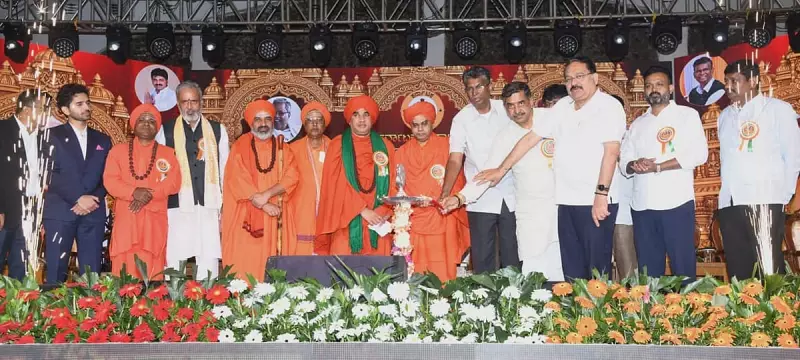
In a powerful appeal for national recognition, Karnataka's Public Works Minister Satish Jarkiholi has emphasized that the legacy of Rani Chennamma, the legendary queen who defied British authority, should resonate across the entire nation rather than remain confined to Karnataka alone.
A Legacy Beyond State Borders
Minister Jarkiholi passionately argued that Rani Chennamma's courageous stand against the British East India Company marks her as a foundational figure in India's independence movement. Her heroic resistance predates the more widely celebrated 1857 rebellion, positioning her as one of the earliest women freedom fighters in Indian history.
"While Karnataka rightfully celebrates her memory, her story deserves a place of honor in the national consciousness," Jarkiholi stated, highlighting the need for broader recognition of her contributions to India's struggle for freedom.
The Historical Significance of Kittur Rani Chennamma
Rani Chennamma, the queen of Kittur in present-day Karnataka, became a symbol of resistance when she led an armed rebellion against the British East India Company in 1824. This bold confrontation occurred more than three decades before the First War of Indian Independence in 1857, marking her as a pioneering figure in anti-colonial resistance.
Her defiance against the British Doctrine of Lapse, which sought to annex princely states without male heirs, demonstrated remarkable leadership and strategic acumen. Despite ultimately being captured and imprisoned, her legacy inspired subsequent generations of freedom fighters throughout India.
Call for National Integration of Historical Narratives
Minister Jarkiholi's appeal reflects a growing movement to recognize regional heroes whose contributions have national significance. Many historical figures from South India have not received adequate attention in mainstream national history, despite their substantial impact on India's freedom struggle.
The minister's statement comes at a time when there's increasing discussion about creating a more inclusive historical narrative that acknowledges contributions from all regions of India, particularly those from southern states that have sometimes been overlooked in national discourse.
Impact on Cultural and Educational Initiatives
This call for national recognition could potentially influence educational curricula and cultural programs across India. Incorporating stories of regional heroes like Rani Chennamma into national education would provide students with a more comprehensive understanding of India's diverse freedom movement.
Such initiatives would not only honor Rani Chennamma's memory but also highlight the multifaceted nature of India's struggle for independence, which involved countless unsung heroes from various regions and backgrounds.





